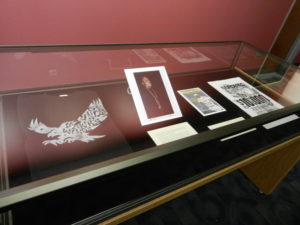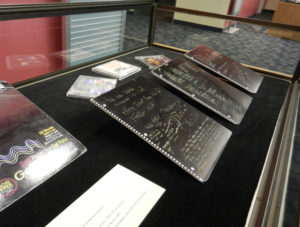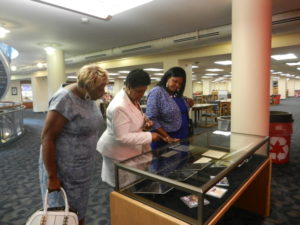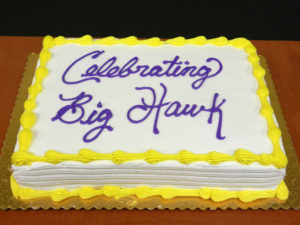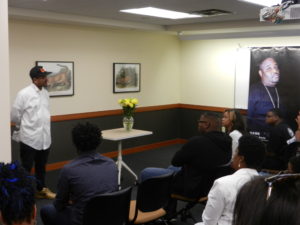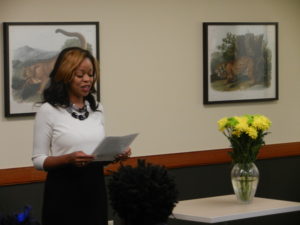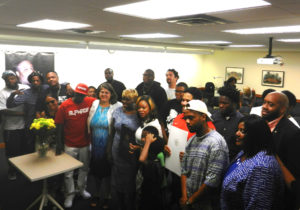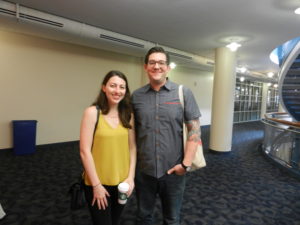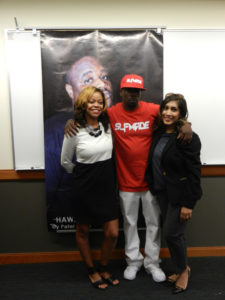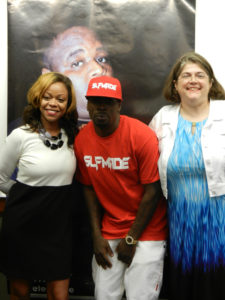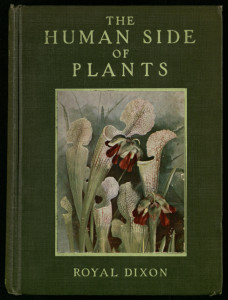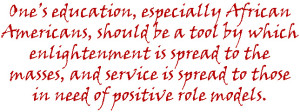
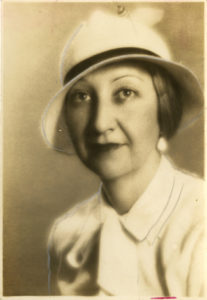
undated portrait of Joyce Burg, from the Betty Trapp Chapman Papers
The University of Houston Special Collections is proud to announce the publication of a new finding aid for the Betty Trapp Chapman Papers. Emily Brooks, Graduate Assistant for the Carey Shuart Women’s Archive, has recently completed the processing of the papers, penned the new finding aid, and was generous enough to share some of her thoughts on the new collection.
In 2004, Ellen Elkins Grimes, Chair of the Women in the Profession Committee of the State Bar of Texas was asked to give a speech about the history of female lawyers who paved the way for today’s women in law. She quickly realized that there was very little information available, especially regarding the early female pioneers of the law in Texas. She decided that the State Bar association should sponsor a book on the history of Texas female lawyers and appointed Betty Trapp Chapman, a prominent Houston historian to complete the research and writing of what would become Rough Road to Justice: The Journey of Women Lawyers in Texas (2008). Chapman is the author of several books on Houston and Texas history such as Historic Houston (2011) and Houston Women: Invisible Threads in the Tapestry (2000).
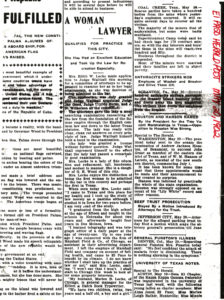
“A Woman Lawyer” (El Paso Herald Post, May 20, 1902, Betty Trapp Chapman Papers)
From Edith Locke, the first woman licensed to practice in El Paso in 1902, to nationally prominent Texas women like Sandra Day O’ Connor, Kay Bailey Hutchinson, and Sheila Jackson Lee, Rough Road to Justice tracks the journey of these women as they overcame discrimination and harassment to succeed in the legal profession. Chapman explores broad social issues that impacted women in the legal profession as well as individual trailblazers that made it possible for women to pursue careers in law today. One such woman was Joyce M. Burg, the first woman to practice law in Houston after she graduated from the University of Texas Law School in 1926 – one of only four women in her class. She went on to become the “grand dame of Houston’s family law system,” practiced law for 60 years and founded the Harris County Women Attorneys Association. When she passed away in 1997 at the age of 96, she was the oldest member of the Houston Bar Association.
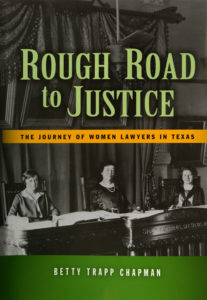
cover of Rough Road to Justice: The Journey of Women Lawyers in Texas (2008)
This collection enriches the Carey C. Shuart Women’s Archive and Research Collection with the often-untold stories of Texas women in the law, unique correspondence with these women and their descendants, as well as original photographs of several of the women featured in Rough Road to Justice. For more information, we invite you to visit our reading room where the Betty Trapp Chapman Papers can be explored.
Ten years after the murder of John “HAWK” Hawkins, Mayor Sylvester Turner proclaimed May 8 “Big Hawk Day” in commemoration of the Houston rapper’s life and career.
View pictures of the event below and learn more about “Big Hawk” via the HAWK Papers or the HAWK Photographs and Memorabilia digital collection.
- Louella Hawkins, Paula Roberts, and Catina Hawkins
- Julie Grob
- Jay Ellis
- Meshah Hawkins
- Todd Spoth
- Meshah Hawkins, Lil’ Keke, and Sarah Syed
- Meshah Hawkins, Lil’ Keke, and Julie Grob
The following comes to us courtesy of Elizabeth Barnes, who just wrapped up an internship through the Graduate Program in Public History, for which she processed numerous archival collections including the Royal Dixon Papers.
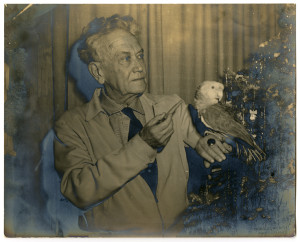
Royal Dixon and bird (December 1956, Royal Dixon Papers)
Special Collections at the University of Houston Libraries announces the opening of the Royal Dixon Papers to the public.
Royal Dixon was a native of Huntsville where he later attended Sam Houston State University. His academic pursuits continued when he held the status of a special student at the University of Chicago and Columbia University. Dixon’s long literary career began with a post at the Houston Chronicle and continued with many short stories and novels. Nearly all of his writing focused on nature and was characterized by the common theme of anthropomorphizing the natural world. His more notable works included The Human Side of Plants (1914), The Human Side of Trees (1917), The Human Side of Animals (1918) and The Ape of Heaven (1936).
Dixon was active in the community and in 1921 he began the First Church of Animal Rights, a short lived group aimed at promoting animal rights. In addition, he wrote on behalf of the plight of immigrants in the United States.
Dixon lived nearly all of his adult life with his partner, renowned local artist, Chester Snowden. The relationship was well documented to family, friends, and business associates. After a debilitating car accident, Snowden was able to take over as Dixon’s power of attorney until he had recovered.
The collection contains typescripts of several of his publications, personal correspondence, minutes and notes from his philanthropic work, and some of his personal teaching notes as well as some of Chester Snowden’s writings. Also included in the papers are many poignant reminiscences and biographical materials Snowden collected in the wake of his partner’s death in 1962.
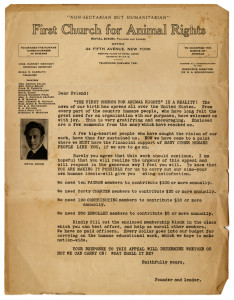
“Dear Friend: ‘THE FIRST CHURCH FOR ANIMAL RIGHTS’ IS A REALITY!” (Royal Dixon Papers)
The Royal Dixon Papers make a unique contribution to our Contemporary Literature Collection, providing insight into the naturalist preservation efforts in Houston during the first half of the Twentieth Century, as well as the LGBTQI community during the same time. For further information please consult the newly available finding aid. All of Royal Dixon’s original materials can be viewed in our reading room.
This spring 2016 semester we are proud to partner once again with the English Department’s Professional Internship Program and host Elizabeth Beaver, our newest UH Special Collections Social Media Intern. As part of her duties, Beaver will be researching, drafting, and editing content for the Special Collections blog as well as our Facebook page. In her first contribution, she examines the founding and evolution of African American Studies at the University of Houston.
1969: The Dawn of a Trailblazing Academic Program
Elizabeth Beaver
Today, I would like to pay homage to our very own African American Studies Department which has its roots in the civil rights movement of the 1960s.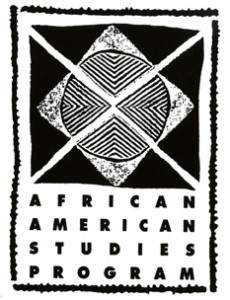
The 1960s were a time of intense civil rights activism which generated a great deal of momentum for issues of racial equality. In comparison to the national ferocity, the citizens of Houston presented a more subdued and subtle front. A city-wide media blackout and backroom negotiations allowed the city to quietly take on the task of integrating its large, commercial establishments without the horrific scenes of violent clashes taking place in other Southern cities. Despite this compromised and negotiated “peace” of the period, University of Houston students’ demands for changes in the curriculum found them standing at the fore of the evolution of Liberal Arts education in the South. In 1969, dissatisfied with the status quo, the student organization Afro-Americans for Black Liberation (or AABL) presented University President Philip Hoffman with a list of ten demands. The 1969 Houstonian reports that the so-called demands included “more black administrators and instructors,” “a raise in the pay scales for maintenance employees,” as well as the establishment of “an Afro-American studies department.” The University rose to the demands of the students, as well as the changing social climate of the city itself, and launched a number of African American Studies courses in the spring of 1969.
Exploring a new field of study, the African American Studies Program actively invited interest and education in an important cultural field that had previously been entirely sidelined. In an era rich with advocacy and public protest, the University of Houston was quick on the heels of the first program in the nation (offered by San Francisco State University in 1968), and was the first in Texas and the Southeastern United States to offer one of these trailblazing programs.
The value of education may be a given. However, the establishment of the African American Studies Program illustrated this importance in two ways: 1) It provided expanded educational opportunities to individuals (of all colors and creeds) in a field of study that had reached a critical mass of interest and demand and 2) exemplified that education served a larger, societal impact, given the previous marginalization of scholarship related to the African American experience.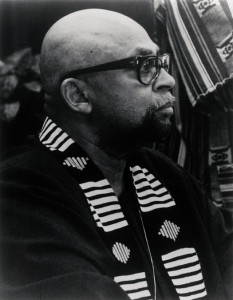
Over the years, the AAS Program has hosted many notable speakers, including highly acclaimed scholar and writer Dr. Maulana Karenga, astronaut and former UH Graduate Bernard A. Harris, and many other distinguished leaders. Our archives contain records from when Dr. Karenga came to speak in February of 1995, and include travel details and information related to the talk and panel, “Black Studies, Social Policy and Social Practice: Joining Campus and Community.” As a prominent scholar in his field, astronaut, and UH graduate, Bernard Harris was invited to the university by the AAS Program to give a talk in January of 1994. Only a year later he was a member of NASA’s STS-63 Crew and became the first African American to take part in Extravehicular Activity or “EVA” (NASA nomenclature for a spacewalk)! The organization plans and details for his campus talk can be found in our African American Studies Records. The folder contains, among other things, personal details and biographical information, education and honors received, as well as mission highlights from the time he logged in space. We also have a video interview of Harris (available digitally, as well) if you are interested in learning more about this esteemed astronaut and UH alum.
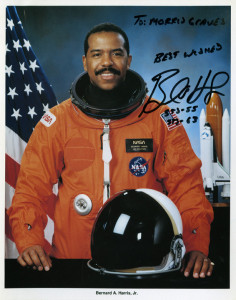 The current African American Studies Department is the result of significant growth over numerous decades and the recent efforts by university authorities. In March of 2014, CLASS Dean John W. Roberts appointed a task force dedicated to the growth and development of the AAS Program. By the next year, it was a fully formed department making plans for African American History Month. The current department has big plans for this year as well, now boasting a wide selection of courses and opportunities for community outreach. The department enjoys a longstanding study abroad relationship with Gambia, as well as numerous scholarship offerings. The department has grown to match the needs of the University and the city as they develop and change, and it continues to impact Houston’s diverse cultural environment in increasingly positive ways. The program organizes many different off and on-campus talks and events as well as community involvement opportunities, and has hosted numerous visiting scholars over the years.
The current African American Studies Department is the result of significant growth over numerous decades and the recent efforts by university authorities. In March of 2014, CLASS Dean John W. Roberts appointed a task force dedicated to the growth and development of the AAS Program. By the next year, it was a fully formed department making plans for African American History Month. The current department has big plans for this year as well, now boasting a wide selection of courses and opportunities for community outreach. The department enjoys a longstanding study abroad relationship with Gambia, as well as numerous scholarship offerings. The department has grown to match the needs of the University and the city as they develop and change, and it continues to impact Houston’s diverse cultural environment in increasingly positive ways. The program organizes many different off and on-campus talks and events as well as community involvement opportunities, and has hosted numerous visiting scholars over the years.
We invite you to come by the reading room to catch a few exciting glimpses into the history of this exemplary academic program via the the University Archives and the African American Studies Records!
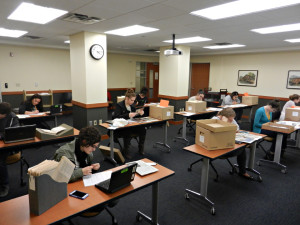
Dr. Leandra Zarnow’s students paid a visit to UH Special Collections early in the spring 2016 semester.
The Instruction Program at the University of Houston Special Collections continues its growth and impact on teaching and learning around campus, at both the undergraduate and graduate level.
The fall 2015 semester saw our Evans Room welcome a number of first-time visits from UH professors and their classes, as well as the continuation of some long-standing partnerships that have made Special Collections a permanent fixture on the class schedules across a number of disciplines. University Archivist Mary Manning hosted Dr. Lyle McKinney’s “History and Philosophy of Education,” where students consulted with the University Archives to trace the growth of not only the University as a whole (from its origins as a junior college, through its explosive growth following WWII, and the evolution of student life into the late 20th century), but also of individual disciplines and courses offered at UH. Dr. Roberto Tejada visited Special Collections with two of his classes (“Advanced Projects in Literary Translation” and “Master Poetry Workshop”), where Hispanic Collections Archivist Lisa Cruces shared a number of artists books from North America and Latin America, and students were able to engage in the challenges of translation with these materials.
Instructors for classes held in Special Collections included archivists from Special Collections as well as specialist librarians from other departments. In an exciting outreach collaboration Porcia Vaughn, Biology & Biochemistry Librarian, visited Dr. Lawrence Williams’s “History and Philosophy of Biology” class to highlight and discuss some of the rich resources hosted among the rare books available for research in the natural sciences. Those students in turn visited our reading room to consult with science texts dating back centuries, providing an opportunity for keen and curious eyes to trace the development of the scientific revolution.
Now, the spring 2016 class schedule is in full swing. Dr. Jesse Rainbow, Dr. Leandra Zarnow, and Dr. David Mazella have already visited Special Collections this semester. In addition to what has become a very full and recurring schedule, Coordinator for Instruction Julie Grob has scheduled a number of new and interesting collaborations with the Honors College and a number of departments across the humanities. Students of Dr. Bill Monroe will visit to explore some of our resources related to literary and visual artists of the American Southwest. Also scheduled to visit Special Collections as part of their instruction are Dr. James Zebroski’s “Introduction to LGBT Literature,” Dr. Mark Allan Goldberg’s “U.S. Latina/o Histories,” and Honors College students from the “Ideology and Empire: Russia” course of Dr. David Rainbow.
As part of our mission to support the teaching and research activities of the University of Houston, Coordinator for Instruction Julie Grob works with professors to leverage the wide variety of resources in Special Collections into the everyday teaching and learning at the University of Houston. Be sure to contact Julie if you are interested in exploring future collaborations to impact your classroom.
